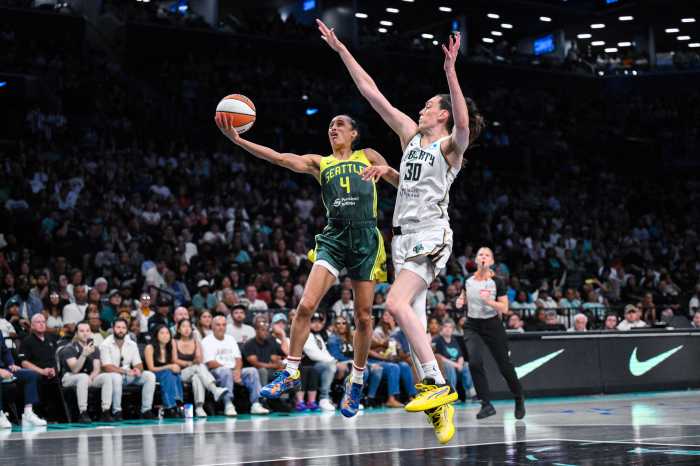A network of 89 community nonprofits, including four in Queens, may be forced to end its critical housing and legal services for homeowners if Gov. Andrew Cuomo fails to provide the necessary funding by March 31.
The Communities First Coalition of 167 organizations, businesses, and labor unions, rallied in Albany on Feb. 5 requesting Gov. Cuomo to allocate $20 million in funds in the executive budget proposal for community nonprofits to continue its network of free assistance.
Over the last decade, the network of housing counseling and legal service providers have helped families across the state navigate complex housing challenges, including mortgage fraud, displacement and predatory scams. To date, the network has already helped more than 100,000 New York homeowners, primarily working and middle-income families, seniors, and communities of color, to avoid displacement caused by foreclosure, fraudsters or mortgage distress.
The need for housing assistance in Queens is especially critical, since foreclosure rates have been increasing, according to Yoseline Genao-Estrella, director of Neighborhood Housing Services of Queens, which provides a plethora of services to over 5,000 low- to moderate-income residents.
“Our capable and various counselors who are trained to assist our neighbors will have to be relocated to other programs or may have to be downsized, so our organization is doing everything possible because the need for foreclosure services has not been dwindling down,” Estrella said. “Last year, we provided counseling to 146 families to help them preserve their home.”
A NHS of Queens client, who wanted to remain anonymous for privacy concerns, said programs like NHS of Queens are “absolute assets” to every community in the country.
“After years of juggling bills and the expansion of my family, things started to go downhill. No matter how much I tried to keep up with my bills, financial strain worsened and eventually the upkeep of my mortgage payments became difficult to maintain,” he said. “Not only did NHS of Queens help me regain my home, but it was done in a very expedient, professional and timely manner.”
The potential funding cliff comes at a time when tens of thousands of New York homeowners and their communities are still struggling with unmanageable mortgage payments.
Foreclosures remain at crisis levels: In 2017, there were 20,000 new foreclosure cases filed in New York. This year, the number of 90-Day Pre-Foreclosure Notices — a signal of mortgages going into foreclosure — is projected to be even higher than the year before. Seniors are especially vulnerable, as they get caught up the surge in reverse mortgage foreclosures across the state.
If funding isn’t received by March 31, an estimated 18,000 homeowners won’t receive help next year, and nearly two-thirds of New York state’s foreclosure prevention program capacity will disappear overnight, according to the Communities First Coalition. Elected officials will also have nowhere to refer constituents for free assistance — potentially leading homeowners to pay exorbitant fees or to fall for scams. Finally, the statewide hotline and intake for homeowners will be shut down, cutting off a critical lifeline to New York families.
“Our hope is that [the funding] will be including in the executive budget because these critical services are of importance,” Estrella said. “Not having the $20 million will be very detrimental to the communities, and is going to cost even further money to be able to afford the investments in the community and for homeowners.”
































